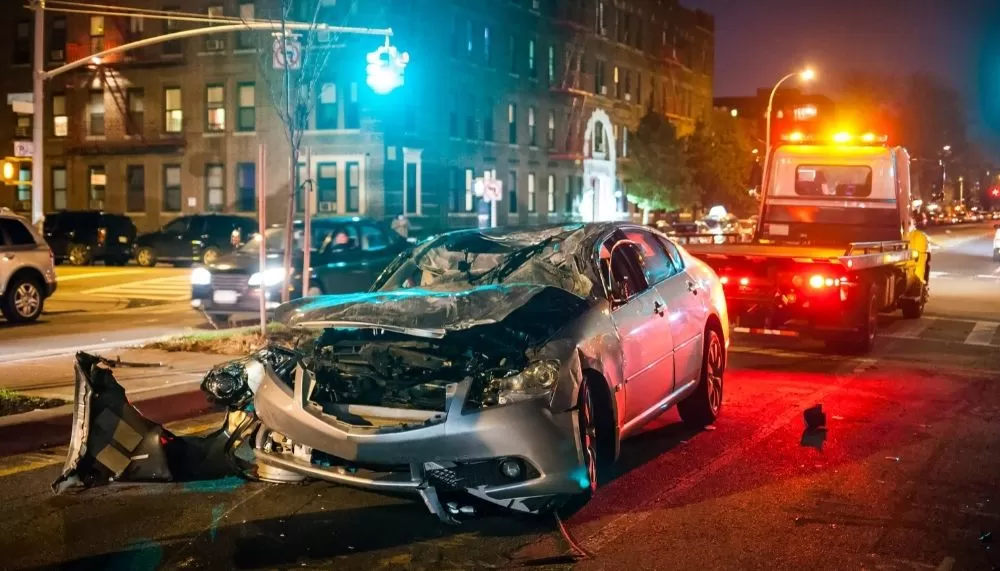Introduction
Getting into an auto accident is an unfortunate reality for many. In bustling cities like San Diego, where traffic congestion is a daily occurrence, the chances of an accident rise significantly. When the dust settles after a collision, one crucial element often determines the outcome of any legal or insurance claims: medical documentation. This article delves into the importance of medical documentation after an auto accident in San Diego, highlighting its role in recovery, legal proceedings, and overall well-being.
The Importance of Medical Documentation After an Auto Accident in San Diego
Medical documentation serves as a vital record of your health status following an auto accident. Not only does it provide essential information Moseley Collins Law San Diego truck accident lawyers about injuries sustained, but it also creates a link between the accident and the medical treatment you receive afterward. This connection is critical for any potential claims against insurance companies or at-fault parties.
Why Is Medical Documentation Crucial?
Establishes Injury Claims
When you've been in an auto accident, having comprehensive medical records helps establish the extent and nature of your injuries. This documentation becomes crucial when dealing with insurance adjusters or courtroom scenarios.

Tracks Recovery Progress
Clear medical records detail your recovery journey, showing improvements or setbacks over time. This can influence settlements and future care plans.
Prevents Insurance Denials
Without proper documentation, insurers may deny claims based on insufficient evidence regarding your injuries or treatment.
Facilitates Better Communication with Healthcare Providers
A well-documented medical history allows healthcare providers to offer more personalized care tailored to your needs.
Types of Medical Documentation Important After an Auto Accident
Understanding different types of medical documents you may encounter is essential for maintaining your health post-accident.
Emergency Room Reports
After an accident, many victims go directly to the emergency room (ER). These reports often include:
- Initial diagnosis Treatment administered Follow-up recommendations
Diagnostic Imaging Results
From X-rays to MRIs—these imaging results play a pivotal role in understanding hidden injuries such as fractures or internal damage.
Physician’s Notes
Your doctor’s observations during follow-up visits are invaluable for documenting ongoing issues related to the accident.
Physical Therapy Records
If rehabilitation is required, physical therapy notes will track your progress and help substantiate ongoing pain or limitations resulting from the incident.
How to Gather Medical Documentation Post-Accident
Navigating post-accident care can be overwhelming; however, gathering necessary medical documentation doesn’t have to be complicated.
1. Visit a Healthcare Provider Promptly
It’s imperative to seek medical attention immediately after an auto accident—even if you feel fine initially. Some injuries take time to manifest symptoms.
2. Request Copies of All Medical Records
Make sure to ask your healthcare provider for copies of all relevant documents related to your treatment for the accident.
3. Keep Detailed Notes
Maintain a personal log detailing appointments, treatments received, medications prescribed, and any changes in conditions post-accident.
Working with Accident Lawyers: Why It Matters
When dealing with legal repercussions from an auto accident, partnering with experienced accident lawyers can significantly influence outcomes. They understand how critical medical documentation is in making strong cases against at-fault parties or negotiating fair settlements with insurance companies.
The Role of Accident Lawyers in Document Gathering
Accident lawyers often assist clients by:
- Ensuring all necessary documents are collected. Guiding clients on follow-up appointments. Advising on what additional evidence may strengthen their case.
Common Misconceptions About Medical Documentation
With numerous myths surrounding medical documentation after accidents, let’s clear up some confusion:
Myth 1: You Don't Need Records if You're Not Seriously Injured
Many people erroneously believe that minor injuries don't require documentation; however, even small issues can escalate without proper records.
Myth 2: Insurance Companies Will Automatically Accept Your Claim
While insurers may review claims quickly, they often rely on documented evidence before approving anything—especially if disputes arise later on.

What Happens If You Don’t Document Your Medical Condition?
Neglecting to document your condition can lead to numerous complications:
Difficulty Proving Injury: Without records linking injury and treatment back to the accident. Longer Legal Battles: Insurers may dispute claims without solid proof. Potential Denial of Future Claims: Inadequate documentation could haunt you later if further complications arise from untreated injuries.FAQs About Medical Documentation After Auto Accidents in San Diego
Q1: What should I do immediately after an auto accident?
A1: Seek medical attention right away! Even if you feel fine initially, some injuries may not present symptoms immediately.
Q2: How long should I keep my medical records post-accident?
A2: It's advisable to keep all related documents for at least three years following the incident—or longer if you're still undergoing treatment or involved in litigation.
Q3: Can I still file a claim without extensive medical records?
A3: While it's possible to file a claim without extensive records, having robust medical documentation strengthens your case significantly against insurers or defendants.

Q4: How do I convince my doctor to provide detailed records?
A4: Be proactive in communicating that you need thorough documentation for legal purposes; doctors are generally supportive when they understand why it matters!
Q5: What happens during court proceedings involving my medical records?
A5: Your attorney will likely present these documents as evidence regarding injury severity and recovery efforts while opposing counsel may scrutinize them during cross-examinations.
Q6: Should I discuss my case details with my healthcare provider?
A6: Yes! Keeping relevant parties informed ensures everyone understands how best to support both your health needs and potential legal implications stemming from those needs.
Conclusion
In summary, understanding the importance of medical documentation after an auto accident in San Diego cannot be overstated. From establishing valid injury claims to facilitating effective communication between healthcare providers and attorneys—properly organized medical records are essential components that can significantly impact recovery outcomes and legal resolutions alike! So whether you're involved in negotiations with insurance companies or working alongside dedicated accident lawyers, ensuring that every detail is documented meticulously will serve as both shield and sword on your journey toward justice and healing after such life-altering events!